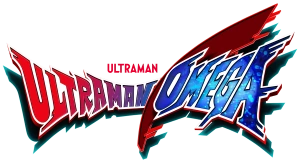Ultraman Nexus ran from October 2nd, 2004, to June 25th, 2005, as the 18th entry in the Ultra Series, and the third and final product of the Ultra N Project. Although known for featuring a more serious, adult, and atmospheric story than its predecessor, Ultraman Cosmos, it was also intended as a re-imagining or reboot of the original Ultraman.
Unfortunately, as the series ran in its early morning timeslot, due to the network believing adults would not wish to be shown Ultraman, it received the lowest ratings (until then) in franchise history. This resulted in it being cut to 37 episodes and the intended sequel film, Ultraman 2: Requiem, being scrapped in favor of Ultraman Mebius & the Ultra Brothers. However, later the series was aired at a 2:00 AM timeslot, to better ratings.
On April 24, 2017, TOKU announced that the series would be broadcast in the United States on its channel beginning May 9, 2017.[1][2]
Synopsis
The TLT is a covert international anti-monster unit established secretly to combat Space Beasts, mysterious monsters that are out to attack humans in the year 2009. One of the TLT's new recruits, Kazuki Komon, is attacked by one of them prior to reporting for duty. However, he is saved by a silver giant that he names "Ultraman". What no one knows is that the silver giant is an Ultraman — to be precise, Ultraman Nexus, ready to fight the Space Beasts to save the planet Earth.[3]
Characters
Deunamists
- Shunichi Maki (Mentioned Only)
- Jun Himeya
- Ren Senjyu
- Nagi Saijyo
- Kazuki Komon
TLT
- Yu Kirasawa
- Yoichiro Matsunaga
- Mizuhara Sara
- Hayata Kaimoto
Night Raiders
Memory Police
- Shutou Saya
- Mizuo Nonomiya
Antagonists
Ultras
- Ultraman Nexus
- Ultraman Noa
- Dark Faust
- Dark Mephisto
- Dark Mephisto Zwei
- Dark Zagi (Unknown Hand)
Kaiju/Seijin
- Pedoleon
- Klein
- GroB
- Fliegen
- Beesectar
- Bugbuzun
- Brood
- Growler
- Galberos
- Lafleya
- Nosferu
- Beast Human
- Arakunia
- Frogos
- Golgolem
- Kutuura
- Grantella
- Banpira
- Lizarias
- Lizarias Growler
- Mega Flash
- Izmael
Cast
- Kazuki Komon - Takuji Kawakubo
- Jun Himeya - Yusuke Kirishima
- Ren Senjyu - Masato Uchiyama
- Nagi Saijyo - Yasue Sato
- Eisuke Wakura - Tamotsu Ishibashi
- Mitsuhiko Ishibori - Kousei Kato
- Shiori Hiraki - Keiko Goto
- Yu Kirasawa - Nobuhiko Tanaka
- Riko Saida - Shion Nakamaru
- Shinya Mizorogi - Mitsutoshi Shundo
- Mizuo Nonomiya - Tomomi Miyashita
- Youichiruu Matsunaga - Horiuchi Masami
- Jinzou Negoro - Hiroshi Okouchi
- Saya Shutou - Hitomi Hidaka
- Hayato Kaimoto - Hisataka Kitaoka
- Hiroyuki Misawa - Yoshito Takeuchi
- Tougou - Kenji Sahara
- Sara Mizuhara - Kyoto Tomoya
Songs
- Opening themes
- Aoi Kajitsu
- Lyrics: Daiki Yoshimoto
- Composition & Arrangement: Akihito Tokunaga
- Artist: doa
- Episodes: 26-36
- Ending themes
- Itsumo Kokoro ni Taiyō o
- Lyrics & Composition: U-ka Saegusa
- Arrangement: Masazumi Ozawa
- Artist: U-ka Saegusa in dB
- Episodes: 1-13
- Tobitatenai Watashi ni Anata ga Tsubasa wo Kureta
- Lyrics: U-ka Saegusa
- Composition: Aika Ohno
- Arrangement: Masazumi Ozawa
- Artist: U-ka Saegusa in dB
- Episodes: 14-25
- Akaku Atsui Kodō
- Lyrics & Artist: Rina Aiuchi
- Composition: Masaaki Watanuki
- Arrangement: Masazumi Ozawa
- Episodes: 26-36
Video Game
A video game based on the series was produced by Bandai for the PlayStation 2, under the name Ultraman Nexus.
DVD Box Sets
Trivia
- At one point in development, Ultraman Nexus was meant to be a show called Ultraman Cross and was conceived as a foil to its predecessor, Ultraman Cosmos.
- As production on the movie that eventually became The Next involved more of the crew from the new show, the decision was made to merge the show into the movie's continuity, and it was renamed Nexus.
- Ultraman Nexus is is the first show explicitly made for an older audience; being geared towards teenagers and adults.
- This is the last series to use Ending Credits. The following shows until Ultra Galaxy removed Ending Credits.
- This the first and only Ultra Series where the Ultraman's host was not the main character.
- It is also the first show with multiple hosts for a single Ultraman.
- Until the release of Ultraman Ginga (and excluding the Ultra Mini Series), this Ultra Series has the least number of episodes compared to the entire Ultra Series.
- However, if the Director's Cut of episode 29 counts as 2 episodes and the Special Episode (which is 1 hour long) counts as 2 episodes, the series has a total 40 episodes. This makes it the same length as the Ultraman Max.
References
External links
Template:Shows and Films

